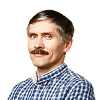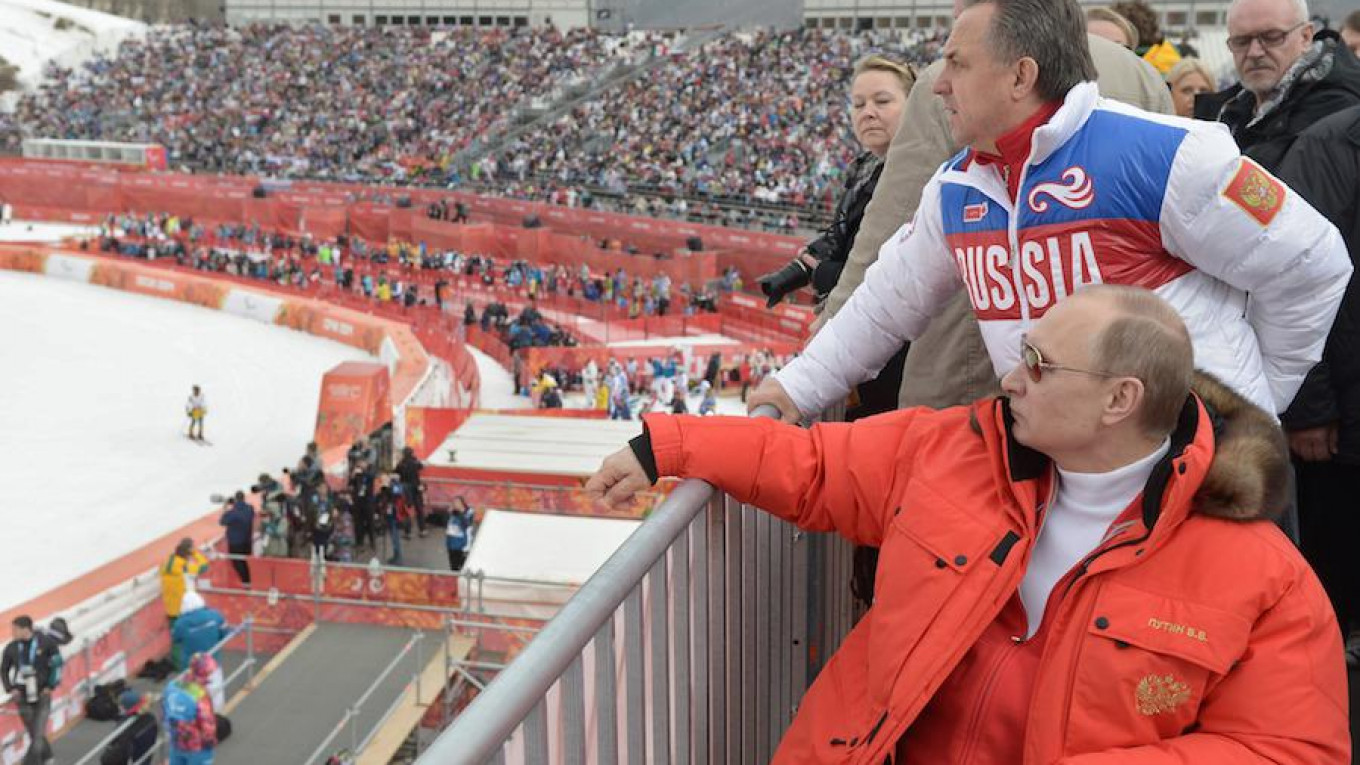During an organizing committee meeting for the 2019 University Games in Krasnoyarsk on Wednesday, President Vladimir Putin spoke of the need to eliminate doping from Russian sports.
Interestingly, Putin has softened his tone. His address lacked the usual diatribe against an ill-defined world community, supposedly hell-bent on undermining the Russian people’s achievements. This barbed narrative had come to characterize his statements last summer, following the release of the McLaren report and the subsequent disqualification of Russian Paralympians.
The president also acknowledged that systemic doping took place, previous Russian anti-doping systems had failed, and that Russia must uphold the World Anti-Doping Agency’s (WADA) standards. However, he continues to deny the existence of a “state-sponsored” doping program.
Against the backdrop of outspoken comments by Russian sports officials and Duma deputies, Putin positions himself as a peacemaker aiming to mitigate the conflict with international sports organizations and make some partial concessions.
Putin’s statements can be interpreted as a call to restore relations with international governing bodies and as a positive signal to the international athletic community and domestic sports officials, coaches, and athletes, according to political analyst Alexei Makarkin.
Meanwhile, Russia’s Investigative Committee continues its anti-doping investigation. Several dozen athletes and officials have already been questioned, but the primary focus is on former Russian Anti-Doping Agency (RUSADA) head Grigory Rodchenkov, now living in the U.S., whom investigators claim persuaded athletes to use performance-enhancing drugs.
The Kremlin, however, does not need any new revelations of wrongdoing or scandals. Vladimir Putin, apparently, acknowledged the threat of isolating Russia’s athletes, after the bobsled and skeleton championships, as well as the Biathlon World Cup were moved away from Russia.
With the Confederations Cup and the World Cup – widely considered to be Putin’s pet projects – just around the corner, those came as very bitter pills to swallow, Makarkin said.
Russia is showing that it is willing to abandon its “victory at any price” approach for the 2018 Winter Olympics in Pyeongchang and intends to punish any athletes found guilty of doping in the future.
Russian officials welcomed a recent open letter from IOC Director General Christophe de Kepper claiming that the WADA findings provided insufficient evidence on many Russian athletes to warrant sanctions against them. Of course, that does not mean that WADA is contesting the conclusions of the McLaren report. Rather, it indicates that anti-doping officials are formulating a unified legal position for dealing with cases of doping in different sports and the inspection of athletes’ samples mentioned in the report. It is still too early for optimism.
In his latest comments, Putin also said that Russia’s anti-doping laboratory would be transferred to Moscow State University, receive separate funding from the federal budget, and that the Sports Ministry would no longer oversee it. This would ostensibly make the laboratory more independent and would comply with WADA requirements.
Transferring a country’s anti-doping laboratory into the hands of a leading university is a common practice, and in Italy it proved very effective, according to legal expert Georgy Rusanov. Such a practice makes it more difficult for officials to influence the laboratory’s work.
Despite this, the announced war on doping remains empty talk until a major shift takes place in Russian sport science, according to sport physician Sergei Ilyukov. Without which Russian athletes are unlikely to achieve victory without doping. Such a shift would require at least half a decade.
A Message from The Moscow Times:
Dear readers,
We are facing unprecedented challenges. Russia's Prosecutor General's Office has designated The Moscow Times as an "undesirable" organization, criminalizing our work and putting our staff at risk of prosecution. This follows our earlier unjust labeling as a "foreign agent."
These actions are direct attempts to silence independent journalism in Russia. The authorities claim our work "discredits the decisions of the Russian leadership." We see things differently: we strive to provide accurate, unbiased reporting on Russia.
We, the journalists of The Moscow Times, refuse to be silenced. But to continue our work, we need your help.
Your support, no matter how small, makes a world of difference. If you can, please support us monthly starting from just $2. It's quick to set up, and every contribution makes a significant impact.
By supporting The Moscow Times, you're defending open, independent journalism in the face of repression. Thank you for standing with us.
Remind me later.







